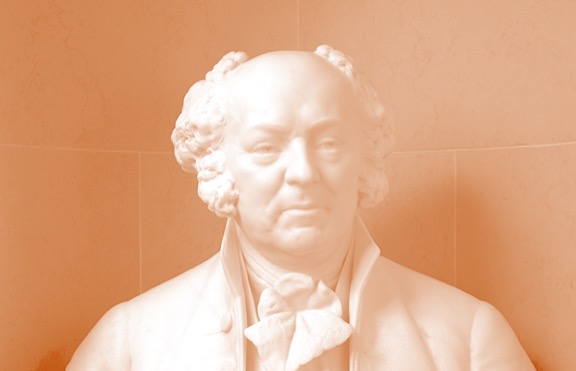It’s Good to Be Against Things

Yes, “Parties of No” can win.
The new conservative coalition doesn’t make much sense. As Spencer Klavan recently observed, “More and more people at all levels of society have gone into political crisis mode, placing free speech at the top of their priority list and making common cause with absolutely anyone who will help them preserve it.” Beyond a penchant for conversation, what does Blair White have in common with Timothy Gordon? What goals could a conservative coalition that includes libertarians and traditionalists, believers and atheists, homosexuals and natural lawyers and even transgenderists with the occasional Catholic integralist thrown in for good measure, possibly agree on?
We want to defeat the “woke” Left. That’s all. Our aim is strictly negative: a politics of opposition. Each component part wants something more, but those particular goals often conflict. On porn and prostitution, libertarians want de-regulation; traditionalists, re-regulation. Some wish to return to an Aristotelian politics ordered toward virtue. Some long for a politics of natural rights based on our nation’s founding philosophy. Some just miss the politics of five or six years ago when everything looked more or less as it does now but without the celebrity child drag queens. We don’t agree on much, but we know we don’t like leftism.
A Little Perspective
Can mere opposition sustain a political coalition? Ask the Left, which has won many more cultural victories than the Right in recent decades with an even less coherent alliance. Islamist Linda Sarsour and feminist Gloria Steinem linked arms at the Women’s March, despite the natural tension between hijabs and pussyhats. The same movement that has for more than half a century promoted homosexual rights now insists upon transgenderism, which denies the reality of homosexuality by rejecting sexual difference altogether.
Little unites the disparate factions of the leftist movement other than their common foe: Western civilization. The Left opposes our cultural tradition. Conservatives oppose the people who want to dismantle our cultural tradition. If the politics of opposition suffices for the Left, why would the same not hold true for the Right?
Conservatives have long felt anxious over their oppositional coalitions. In his 1964 speech “A Time For Choosing,” Ronald Reagan complained, “They tell us we are always against, never for anything.” They may have gotten the idea from no less an authority than William F. Buckley Jr., who in the inaugural issue of National Review defined the purpose of the postwar conservative movement as standing “athwart history, yelling Stop.”
As countless thinkpieces attest, academic conservatives fear incoherence in the age of Trump. And incoherence abounds. We want to “bomb the hell out of ISIS,” and we hate “endless wars.” Tariffs “work,” and we hope to eliminate them. Identity politics are destroying this country, and have you seen the latest black unemployment figures? The traditional family has never had a stronger advocate than the first Republican presidential candidate to wave the rainbow flag.
A Step at a Time
What would Buckley and Reagan think of our political schizophrenia?
They might find we look familiar. Political coalitions are always somewhat incoherent—there simply aren’t enough people who think the same thoughts to avoid it—and the postwar conservative movement was no exception. The fusionist philosophy that defined conservatism from the ’50s through the ’90s united three disparate factions in their opposition to the Soviet Union: economic libertarians, social traditionalists, and foreign policy hawks.
The three groups have little in common, and their reasons for opposing Soviet communism differed. Libertarians opposed the Soviet Union’s economic collectivism. Social traditionalists objected to its atheism and disdain for the past. Foreign policy hawks feared its imperial ambitions. The “three-legged stool” of the postwar conservative movement, as Reagan described it, had just one common goal: defeat communism. Despite not “being for” all that much other than destroying the Evil Empire, the fusionist coalition accomplished its goal. The Berlin Wall fell, and then the coalition that toppled it began to fracture under the pressure of its own inconsistency.
Now a new conservative coalition has emerged to oppose the absurdities of woke culture: censorship, gender ideology, political correctness, and political violence to name just a few. Conservatives who go weak on woke—the commentators who defend transvestites’ twerking for toddlers at Drag Queen Story Hour as a “blessing of liberty,” for example—have lost ground in this new political landscape, just as conservatives insufficiently opposed to collectivism lost influence in the postwar conservative movement.
In 2016, this new coalition helped to elect Donald Trump, an inconsistent figure in his own right who sometimes struggles to explain his goals but excels at accomplishing them. Once we’ve vanquished woke-ism, new alliances will emerge because no political coalition lasts forever. In the meantime, only one coherently conservative course avails: encourage what works in practice, even if we can’t quite figure out how it works in theory.
The American Mind presents a range of perspectives. Views are writers’ own and do not necessarily represent those of The Claremont Institute.
The American Mind is a publication of the Claremont Institute, a non-profit 501(c)(3) organization, dedicated to restoring the principles of the American Founding to their rightful, preeminent authority in our national life. Interested in supporting our work? Gifts to the Claremont Institute are tax-deductible.
A new political vocabulary is needed for a world itself quite new.
Part I: Unfettered reason cannot conserve anything.
Part II: Honor and self-constraint can stave off tyranny.






